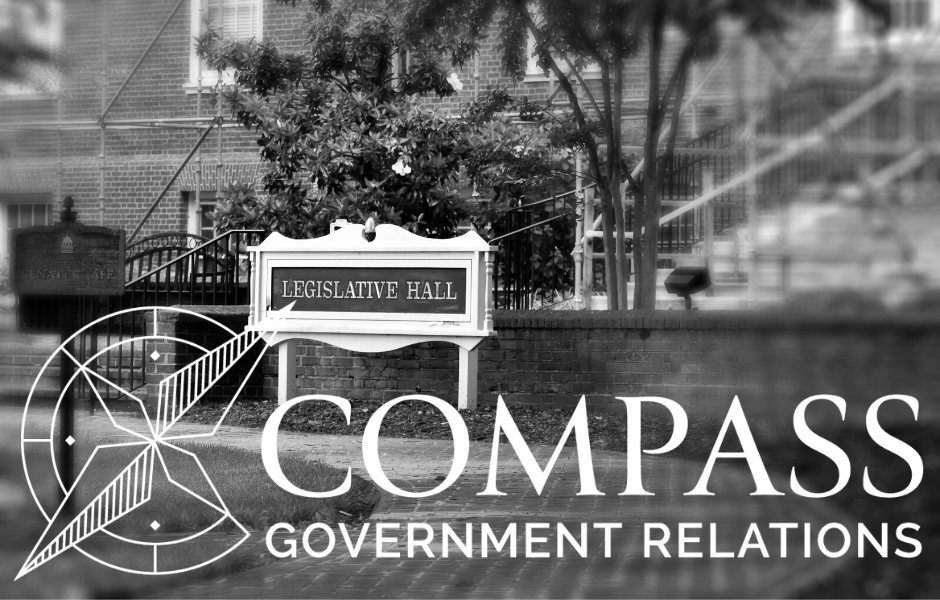
As 2026 budget proposals take shape at both the federal and state levels, advocacy efforts are becoming more complex and interconnected. Funding priorities, tax policy shifts, and regulatory changes are increasingly influenced by decisions made across jurisdictions rather than within a single legislative body. Organizations that rely on government relations services must now navigate overlapping timelines, competing priorities, and inconsistent policy signals, reinforcing the importance of synchronizing advocacy strategy across state and federal lines.
Compass Advocacy helps organizations anticipate and respond to policy changes through coordinated, multi-jurisdictional strategy. By aligning legislative tracking, stakeholder engagement, and messaging across levels of government, Compass Advocacy ensures advocacy efforts remain focused, timely, and effective amid shifting budget conditions. To learn more about our strategic government relations services, call (443) 343-7143 today!
Below, we discuss synchronizing your advocacy strategy across state lines for 2026:
1. Monitor 2026 Budget Shifts That Drive Policy Direction
Budgets dictate more than funding; they signal priorities. At the federal level, 2026 proposals are expected to reshape agency resources, enforcement capacity, and program implementation timelines. These changes influence which issues gain traction and which stall, making early awareness critical.
State budgets reflect different pressures, including revenue shortfalls, infrastructure demands, and social service funding. Advocacy strategies must account for how these budgetary constraints affect legislative appetite and regulatory activity. Tracking these shifts early allows organizations to adjust policy goals before decisions are finalized rather than reacting after outcomes are set.
2. Anticipate State-Level Tax and Revenue Policy Changes
Several states are reevaluating tax structures heading into 2026, including how retirement income and benefits are treated. These discussions are often driven by long-term budget sustainability concerns and changing demographic trends. Even incremental tax adjustments can significantly influence constituent priorities and legislative momentum.
Advocacy teams that track these developments early can prepare targeted messaging and engage decision-makers before positions harden. Coordinating responses across multiple states ensures consistency while still allowing flexibility for jurisdiction-specific economic and political considerations.
3. Align Federal and State Messaging to Avoid Fragmentation
Disjointed messaging between state and federal efforts weakens credibility. When advocacy positions differ across jurisdictions, policymakers may question priorities or perceive internal inconsistency. This risk increases when organizations pursue federal government relations strategies without accounting for how policies are implemented or funded at the state level.
Synchronizing messaging ensures that policy goals remain coherent regardless of venue. Shared data, unified talking points, and coordinated outreach help reinforce intent while adapting language to the appropriate audience. This alignment strengthens trust and improves long-term influence.
4. Coordinate Advocacy Timelines Across Jurisdictions
Legislative calendars rarely align neatly. Federal budget negotiations, state legislative sessions, and regulatory comment periods often overlap or conflict, creating competition for attention and resources. Without coordination, advocacy efforts may miss critical windows for engagement or duplicate outreach unnecessarily.
Effective synchronization requires mapping timelines across jurisdictions and prioritizing actions based on urgency and impact. This approach allows advocacy teams to anticipate pinch points, allocate staff strategically, and maintain consistent engagement even during compressed legislative periods.
5. Integrate Regulatory Strategy With Legislative Advocacy

Budget changes often trigger regulatory responses, particularly in highly regulated industries. Shifts in funding levels can alter rulemaking speed, enforcement intensity, and compliance expectations. Advocacy efforts that ignore regulatory implications risk overlooking downstream impacts that affect operations.
Integrating business regulation services into advocacy planning allows organizations to anticipate how legislation translates into rules. This alignment ensures policy positions address not only statutory language but also practical implementation challenges faced by regulated entities.
Government Relations Services Built for Complex Policy Environments
Navigating 2026 budget changes demands a synchronized advocacy strategy that bridges state and federal priorities. Compass Advocacy provides government relations services designed to integrate these elements into a cohesive strategy. By combining policy insight with disciplined coordination, Compass Advocacy helps clients engage effectively across jurisdictions and remain agile in a shifting budget landscape. To learn more about our strategic government relations services, call (443) 343-7143 today!
 “The General Assembly will have to tackle a significant budget shortfall which amounts to $1 billion in the current fiscal year, $2.7 billion in the next fiscal year, and will continue to grow from there. With the Moore Administration resistant to tax increases, we can expect some difficult budget decisions to be made with respect to spending cuts and legislature-led tax measures. Many things are on the table including a sales tax on services and corporate tax reform.” –
“The General Assembly will have to tackle a significant budget shortfall which amounts to $1 billion in the current fiscal year, $2.7 billion in the next fiscal year, and will continue to grow from there. With the Moore Administration resistant to tax increases, we can expect some difficult budget decisions to be made with respect to spending cuts and legislature-led tax measures. Many things are on the table including a sales tax on services and corporate tax reform.” –  “The election of State Senator Sarah Elfreth to the US House of Representatives, leaves an open seat in the State Senate. Both Delegate Dana Jones and Delegate Shaneka Henson have indicated their interest in moving to the Senate. The Anne Arundel Democratic Central Committee will decide in the next several weeks which delegate will get the Senate seat. This also means that a seat will open up in the Maryland House of Delegates when one of the two candidates gets the nod. Stay tuned to Compass for developments and changes in the Maryland legislature.” –
“The election of State Senator Sarah Elfreth to the US House of Representatives, leaves an open seat in the State Senate. Both Delegate Dana Jones and Delegate Shaneka Henson have indicated their interest in moving to the Senate. The Anne Arundel Democratic Central Committee will decide in the next several weeks which delegate will get the Senate seat. This also means that a seat will open up in the Maryland House of Delegates when one of the two candidates gets the nod. Stay tuned to Compass for developments and changes in the Maryland legislature.” – 



